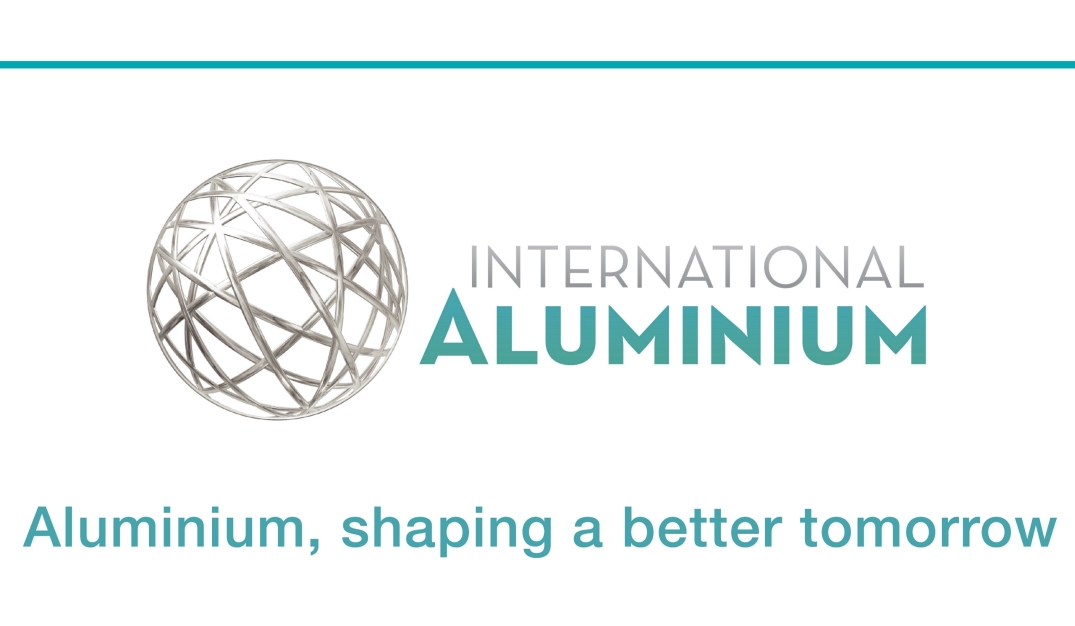'Can Do' Attitude Needed To Achieve 100 Percent Recycling Rate for All Aluminium Drinks Cans
DUBAI, UAE / ACCESSWIRE / December 27, 2023 / A 100 percent recycling target by 2050 for the world's aluminium drinks cans has been set by industry leaders at COP 28.
Aluminium producers, recyclers, rolling mills, can makers and industry associations have set the target having stressed the need for enhanced recycling to support the IEAs Net Zero 2050 goal.
Currently more than 70 percent of aluminium beverage cans are recycled into new products but this figure falls short of making the complete contribution necessary for achieving the 1.5-degree target. Urgent actions for full circularity of aluminium beverage containers are needed to support decarbonisation of the aluminium sector. A little step for a large outcome as aluminium beverage containers recycle without change of quality not once but over and over again.
The number of beverage cans is set to increase from 420 billion in 2020 to 630 billion by 2030 and data has revealed that recycling all cans globally in 2030 would save 60 million tonnes of greenhouse gas emissions per year.
"Together we are calling for greater commitment from national governments and the aluminium beverage can value chain industry to accelerate beverage can recycling rates, with at least 80 percent target by 2030 and near 100 percent by 2050. Reaching these targets is a must for the aluminium sector to decarbonise in line with a 1.5-degree slope" said Marlen Bertram, IAI's Director of Scenarios and Forecast. To enable this to happen, we are calling for the following actions to be adopted by policy makers:
- Establish national and/or state-level recycling targets for aluminium beverage cans.
- Formulate policies to help achieve these targets and enhance the quality of collected used beverage cans.
- Collect and publish data on aluminium beverage can recovery rates to monitor progress.
In addition, there are four actions for the aluminium industry to increase recycling rates towards the goal of 100 percent.
- Scale up existing recycling capacity to recycle all cans put on the market.
- Track the global recycling rate.
- Support smart policies to improve aluminium beverage can collection and recycling.
- Prioritise can-to-can recycling and maximising the recycling content through optimised alloy design and scrap purification.
The following organisations have endorsed the actions:
- Emirates Global Aluminium (EGA)
- Australian Aluminium Council
- US Aluminum Association
- Ardagh Metal Packaging
- Aluminium Association of Canada
- Associação Brasileira do Alumínio (ABAL)
- The Brazilian Aluminium Beverage Can Association (Abralatas)
- Can Manufacturers Institute
- European Aluminium
- Ball Corporation
- Crown Holdings
- Speira
- Canpack Group
- Constellium
- Novelis
- UACJ Corporation
- Metal Packaging Europe
- Elval
- Japan Aluminium Association
- UNESDA
- Beverage Industry Environmental Roundtable (BIER)
- Aluminium Stewardship Initiative (ASI)
- Every Can Counts
- Food Industry Asia
- Mission Possible Partnership
- RECAPP by Veolia
- Rocky Mountain Institute
- Thailand Institute of Packaging and Recycling Management for Sustainable Environment (TIPMSE)
Abdulnasser Bin Kalban, Chief Executive Officer of Emirates Global Aluminium, said: "Infinite recyclability is one of many reasons why aluminium is essential for the development of a more sustainable society. Aluminium is already one of the world's most recycled materials, but too much of this valuable material is still thrown away. Increasing recycling requires supportive government policies and the development of infrastructure. It also depends on people around the world making the right decisions every day about how to dispose of items they no longer need. We all have a role to play in this, and at EGA we are committed to playing our part including working with our waste management, can-making and beverage producer partners in the UAE Aluminium Recycling Coalition we formed."
Kristen King, Director of Sustainability, Ardagh Metal Packaging said: "The aluminium beverage can is one of the most recycled beverage containers globally, and our industry has committed to raising that recycling rate to new heights. To fulfil this commitment, we are calling on national and/or state-level governments to establish targets to increase recycling rates. Collectively, we can successfully recycle more cans, leading to more energy saved, fewer greenhouse gas emissions and increased revenue to help strengthen the circular economy."
John OMaoileoin, Group Global Sustainability Director of CANPACK, said: "When a circular economy is developed and implemented properly, it benefits society, the environment, and the global economy. Keeping precious resources in use for longer is not only morally the right thing to do, it's also the most logical thing to do, as it helps reduce greenhouse gas emissions and waste."
Pierre Labat, Senior Vice President, Chief Strategy and Sustainability Officer of Novelis said, "As the world's largest recycler of aluminum, including the recycling of more than 82 billion used beverage cans (UBCs) each year, Novelis continues to invest to increase our recycling capabilities and capacities with a goal of propelling the aluminum industry toward a more circular future," said Pierre Labat, Senior Vice President, Chief Strategy & Sustainability Officer, Novelis Inc. "Once complete, our new plant being built in Alabama, USA, will be able to recycle approximately 15 billion UBCs annually, bringing our global total to nearly 100 billion.
"At the same time, we continue to work on increasing the amount of recycled content in our products, including our beverage packaging sheet, which is already at upwards of
"As we continue to reflect on the results of our collaborative study with IAI and other parties, we are increasingly focused on the need to act now with regard to recycling system improvement and greater industry commitment toward can-to-can recycling," said Sandrine Duquerroy-Delesalle, Director Sustainability & External Affairs of Crown Holdings.
"It is no longer enough to simply speak about solutions and their potential - it is time for us to take actionable steps including establishing and advocating for effective, ambitious government policies around aluminium beverage can collection, as well as aiming to enhance the quality of collected cans.
Without a strong policy framework, we cannot properly benefit from the circular potentials of the aluminium beverage can and achieve our industry decarbonization goals. This push for policy is among our goals at COP28 and beyond; we call on national government and our peers at this forum to mobilize with us and see what we can accomplish."
Raphael Thevenin, Vice President Strategy and Business Planning of Constellium said, "We count on the engagement from all governments to help implementing any measure to support the collection of aluminium beverage cans. When beverage cans are collected, the industry has the technology to recycle them into new aluminium products without loss of quality and with
"As Europe ́s leading aluminium rolling and recycling company it is part of our DNA to drive recycling and recycling rates in our products and solutions to its absolute maximum. Increasing the share of recycled content is key to reduce the carbon footprint of beverage cans and to contribute to the circular society. We believe in the value of circularity and transparency for the constant development towards a low- carbon society. As a purpose driven company it is our raison d ́être is to build a circular world that works. We are ready to take action and to team-up with decision-makers, industry partners and other societal stakeholders to build a framework that enables growth in recycling of aluminium beverage cans", said Boris Kurth, Head of Can Business and Recycling in Speira.
Panagiotis Tserolas, Sustainability Senior Manager of Elval said: ‘'For Elval, this call is an opportunity to address our shared ambition and commitment, in order to establish the framework and the effective policies needed to unleash the circular potential of aluminium. Increasing recycling rates of UBCs around the world is a critical step to realize our common decarbonization targets. Aided by the inherent properties and recyclability of aluminium, we firmly believe in what we can accomplish with collective action, across all stakeholders, policy-makers, industry and consumers, towards a circular, low-carbon economy and society."
Ramon Arratia, Chief Sustainability Officer, Ball Corporation said: "Circular decarbonization pathways are way faster and more effective than linear ones. We are calling for ambitious policies and commitments that unleash the full social, economic and climate benefits of circularity."
Shinji Tanaka, Director, Managing Executive Officer, Leader of the Corporate Sustainability Division of UACJ group said: "Recycling aluminum is extremely important for improving the sustainability of beverage can sector. Therefore, UACJ agrees with "Call to accelerate Aluminium beverage Can Circularity. We consider the importance of recycling aluminum based on three key points. First point is reducing GHG emissions. Second point is circular utilization of mined mineral resources. And final point is conserving natural capital. UACJ prioritizes horizontal recycling, encompassing Can to Can, to achieve a society where aluminum is utilized indefinitely."
Achieving the 100 percent recycling rate for aluminium beverage cans, is done against a backdrop of the aluminium industry dealing with rising demand for the metal while achieving decarbonisation.
Decarbonisation models for the industry, as presented by IAI, IEA, and MPP, indicate that the aluminium sector has a much higher chance to achieve the required reduction in emissions if it maximises collection and recycling at the end of life.
Media enquiries:
IAI: media@international-aluminium.org
About International Aluminium Institute
The International Aluminium Institute (IAI) is the only body representing the global primary aluminium industry. The Institute has the most comprehensive global data on Aluminium with more than 50 years of analysis on production, consumption, energy use and environmental impact. For more information, visit www.international-aluminium.org, or connect with us on X and LinkedIn.
View original content here.

View additional multimedia and more ESG storytelling from Crown Holdings, Inc. on 3blmedia.com.
Contact Info:
Spokesperson: Crown Holdings, Inc.
Website: https://www.3blmedia.com/profiles/crown-holdings-inc
Email: info@3blmedia.com
SOURCE: Crown Holdings, Inc.
View the original press release on accesswire.com






